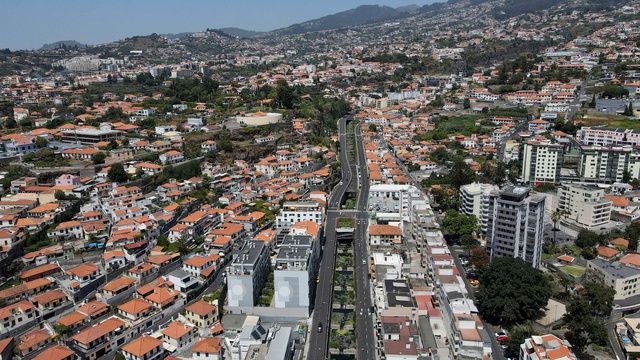Madeira Ranks as Second Priciest Region in Portugal for Rents and Home Sales
A new price change announcement from the property portal Imovirtual has confirmed that the autonomous region of Madeira is the second most expensive place in Portugal to rent or buy a home, surpassed only by the Lisbon district. The September 2025 market barometer shows the average rental price in Madeira at €1,400 per month and the average sale price at €580,000.
A detailed breakdown of price movements by property type reveals that while the overall average rent in Madeira saw a 7% decrease from August, the year-over-year trend remains strong. For sales, the average price of €580,000 represents a 17% increase compared to September of the previous year, indicating significant and sustained appreciation in property values on the island. This contrasts with the national average sale price, which stands at €435,000, up 18% annually.
The primary factors contributing to these price changes are a combination of intense demand from international buyers and a chronic shortage of housing stock. Madeira's popularity as a tourism destination and a haven for digital nomads has fueled a surge in demand that has outstripped the pace of new construction, leading to higher prices for both sales and rentals.
Real estate agency reports from the region corroborate the data. Local agents observe that properties in desirable areas of Funchal are often sold within weeks of being listed, and the rental market is characterized by a distinct lack of long-term options. One agent noted, “The demand from foreign clients, particularly from North America and Northern Europe, has been relentless. They are often cash buyers and are less sensitive to the price increases, which puts local buyers at a disadvantage.”
Buyer and seller behavior has shifted in response to these conditions. Sellers are confident, often holding out for asking prices, while buyers are forced to act quickly and decisively. In the rental market, landlords are increasingly favoring lucrative short-term tourist lets over long-term residential leases, further squeezing the supply available to residents.
Need Expert Guidance?
Get personalized insights from verified real estate professionals, lawyers, architects, and more.
The mortgage market response is a secondary factor, as a significant portion of transactions in Madeira's high-end market involves international cash buyers. However, for local buyers who rely on financing, the combination of high prices and the current interest rate environment has made purchasing a home more challenging than ever.
A comparison with neighboring regions is stark. The other autonomous region, the Azores, shows much lower prices, although the island of São Miguel is also experiencing rapid appreciation, with average rents hitting €1,100 (+38% annually) and sale prices reaching €399,000. On the mainland, the Algarve (Faro district) is the closest competitor, with an average sale price of €550,000 and average rents at €1,250.
Property developer reactions to the market pricing trends have been mixed. While there are some new luxury developments underway, the pace of construction is hampered by high building costs and lengthy approval processes. This ensures that supply is unlikely to catch up with demand in the near future.
The local government of Madeira has acknowledged the housing affordability challenge but has not yet announced major policy interventions, such as significant restrictions on short-term rentals, that could cool the market. The market timing for transactions remains favorable for sellers, who are capitalizing on peak prices. For buyers, the market presents a high barrier to entry but promises continued asset appreciation due to the persistent supply-demand imbalance.
The expected price trajectory for Madeira, based on current indicators, is continued growth, albeit potentially at a more moderate pace than the explosive increases seen over the past year. The fundamental drivers of demand remain firmly in place. Stay informed on Lisbon property market developments at realestate-lisbon.com.






